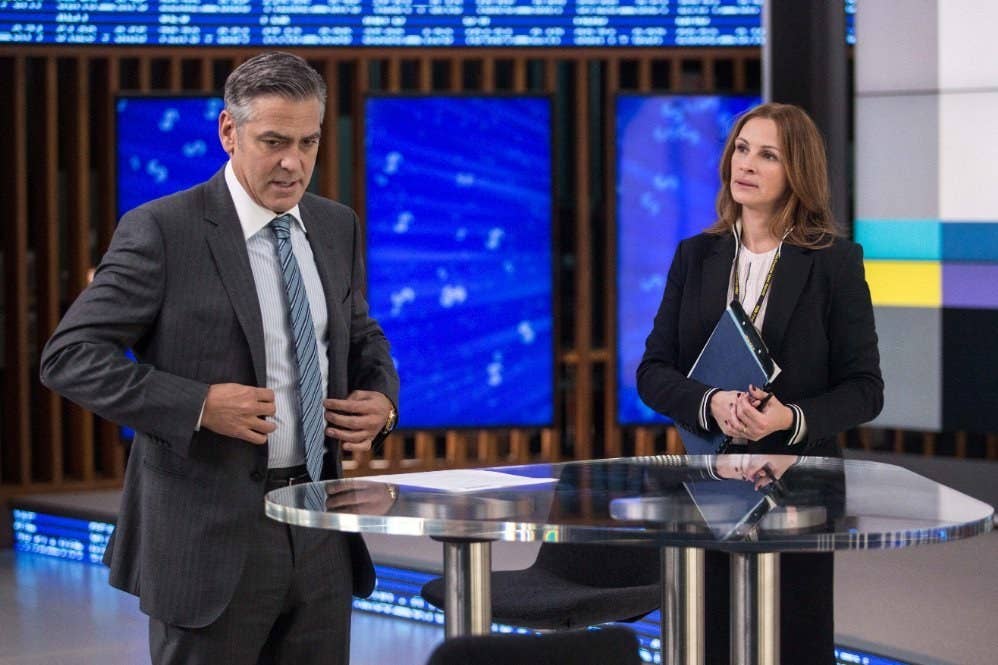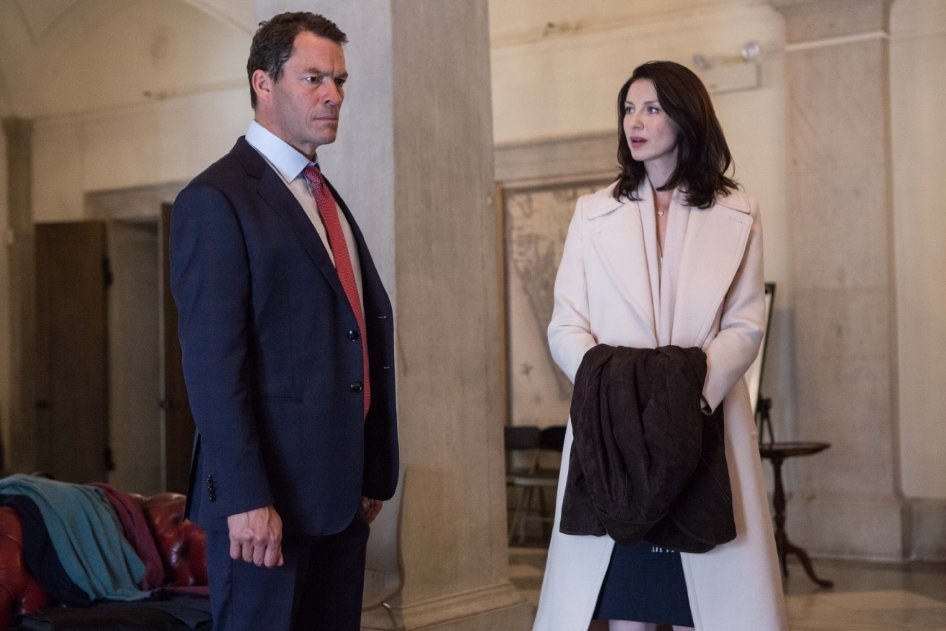
The best scene in Money Monster involves Molly (Emily Meade), the pregnant girlfriend of Kyle Budwell (Jack O'Connell), a working stiff who's reached his breaking point after losing his savings in a bad investment. Now he's taken the finance news show of the title, a riff on Jim Cramer's Mad Money, hostage.
Kyle is holding a gun, he's put an explosive vest on host Lee Gates (George Clooney), and he's insisted that the show continue to broadcast live while he demands answers as to how the company Lee told his viewers to put their money in lost $800 million overnight. Yes, he's mad as hell, and he's not going to take it anymore.
The cops outside track down Molly, who's just gotten home from work, and they bring her in to try to talk Kyle down — standard hostage movie stuff, in which a woman weeps while begging her man to think of her, think of their child. Only in Money Monster, the scene doesn't go as expected at all, because once she's linked in, Molly proceeds to give Kyle a darkly hilarious reaming over his last stand histrionics, snarling, "You are so fucking stupid. You have always been such a fucking failure." After she questions his manhood, Molly drops the mic and leaves her significant other to extract himself from the precarious position he's put himself in. It's a long-in-coming, deeply satisfying twist on a teary cliché.

Money Monster, Jodie Foster's fourth film as a director, is never as interesting as it is in that moment. For the most part, it feels airlifted in from the last decade, not a Network update for the Occupy age so much as a sibling to Foster-led thrillers like Flightplan and Panic Room with ambitions of relevance but few distinguishing characteristics. It takes aim at the 24-hour news cycle that encourages Lee to dole out a daily stock tip without bothering to ask questions. "We don't do gotcha journalism here — hell, we don't do journalism, period," Money Monster's director Patty (Julia Roberts) drawls to spokesperson Diane Lester (Outlander's Caitriona Balfe) in an effort to reassure her that an interview will go according to the talking points she provided.
It also takes a swat at finance ethics as represented by Walt Camby (Dominic West), head of the high-frequency trading company Diane represents and Lee recommended, and at amateur investors swayed by easy promises of big investments rather than researching where they're putting their money. It's not pointed enough to give a good skewering to any of these parties, not evil execubot Walt or poor, dumb Kyle, whose willingness to proclaim that the system is "rigged" is fed by his desire to clear his name. Money Monster comes closest with Lee, who fancies himself more of a celebrity than a newscaster, but there's devastating evidence that proves just how little the public cares about him when he tries to motivate the masses.

Where Money Monster does more than go down slick and easy and fade fast is in the way it slyly undermines the trio of men in its spotlight — Lee, Kyle, and Walt, all guided by ego and all ending up looking foolish for it, while women like Patty and Diane prop them up or attempt to, eventually growing tired of cleaning up their messes. Patty, exhausted by Lee's preening and the show's lack of substance, is on the verge of heading to a new job, while Diane starts to wonder what, exactly, she's defending as the company she works for is scrutinized. And Molly does her walking away during the movie.
Money Monster suggests that the need to prove oneself a big man fuels the flawed system its characters are a part of, and that this is something its female characters come to understand and grow exasperated by. It's only too bad the movie isn't about them, though being sensible is a lot less dramatic than arriving with a bomb and a gun to take a TV studio hostage.

